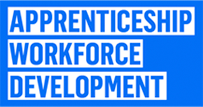UVAC vis-a-vis MOG
So, let’s explore the Machinery of Government changes and the recent evidence report from the Education Select Committee.
It is worth revisiting those important aspects of UVAC and its membership and the role we play in skills policy.
UVAC
UVAC is owned by and run by the higher education sector. UVAC is for ALL HEIs – which as a skills focused higher education membership organisation makes UVAC unique. Our independence and focus allows us to speak for the higher education sector and we not champion one type of university or group of universities or HEIs. We believe that the diversity of the higher education sector is a key strength and that the majority of institutions of all types have a role to play in the design and delivery of technical and professional education and skills provision. UVAC is the largest university group focused on professional, higher technical, vocational and skills provision across all industry sectors and occupations.
UVAC’s research informs our advocacy and the extensive practical support we provide for the higher education sector. We have a track record of providing high quality support for the sector. Our current plans and those for the future include more practical support for members to facilitate delivery of more effective programmes (compliance, quality, cost effectiveness, innovation), the recruitment of more learners and enhanced partnerships with employers and other organisations.
Mission
UVAC’s mission is to maximise the contribution of universities/higher education institutions to skills provision and higher-level vocational learning, in order to increase individual opportunity and individual, employer, local, regional and national prosperity.
What We Believe
UVAC believes that universities make a fundamental contribution to equipping individuals with the knowledge, skills and competencies they need to undertake high-level jobs. Through the provision of higher-level vocational education, higher technical education and higher and degree apprenticeships, universities provide new opportunities for individuals of all ages and increase individual, local, regional and national prosperity.
Government needs to make a commitment to an opportunity agenda for all. Restricting the opportunity agenda to supporting individuals to gain a level 2 or level 3 qualification will limit opportunity. Individuals of all backgrounds and all ages need to have the opportunity to gain qualifications at level 4, 5, 6 and 7, through higher-level skills programmes. UVAC believes that the workplace is an important and under-valued learning environment. UVAC champions the value of learning at and through work at all levels. So, we are very interested to read that the Select Committee’s recommendation to Government is to revisit their defunding of learners by age at Level 7. UVAC has argued since the announcement in the early summer that Skills England should revisit the decision should the causation argument not stack-up.
Degree Apprenticeships
UVAC was instrumental in the launch of degree apprenticeships. UVAC continues to be at the forefront of degree apprenticeship thinking, implementation and the identification and dissemination of good practice and at times in the past 10 years was a sole voice in the defence of their value to apprentices, employers and the perception of apprenticeships in England.
Apprenticeships and Skills
For the last 10 – 15 years UVAC has had a particular focus on the apprenticeship agenda. This will remain central to UVAC advocacy and support now that the all-age apprenticeship policy remit sits with DWP. It is, however important that UVAC promotes and supports the development of the wider higher education role in higher-level skills, vocational education, higher technical and professional education. UVAC must make the case for universities and HEIs and their role in higher-level skills and vocational provision. This means how institutions equips individuals for skilled employment and graduate jobs; how institutions deliver the knowledge and skills employers need and supports those entering the workforce and those in the workforce. UVAC needs to promote how HEIs support the growth of local and regional economies and how higher-level vocational provision supports opportunity for all. The argument is very strong but is at risk of being drowned out by other matters and other organisations’ messaging.
The Current Political Narrative
Between the June 2024 General Election and the September 2025 reshuffle there was a lack of focus on and narrative from the government on skills, particularly in relation to productivity and growth. Prior to the recent cabinet reshuffle, the DfE was moving to a position where the focus of apprenticeship was increasingly on young people, at the expense of adults and lifelong learning. This contrasts with the position of the previous Conservative administration where apprenticeship had been an ALL age and ALL level programme. Following the announcement of the removal of levy funding (as of 1 January 2026) for level 7 apprenticeships taken by over 21 year-olds, further restrictions may be on the horizon.
The Shift to DWP
The top two issues for DWP will be to reform the welfare budget, by getting the long-term sick back into work and reducing NEET numbers. The number currently stands at 948,000 . This will build on the narrative of Bridget Phillipson and Jacqui Smith that was focused on prioritising opportunities for young people. The risk for UVAC is that two related policy issues, welfare reform and tacking NEET, dominate and suffocate a third policy issue for DWP, tackling shortages of skilled staff in key industries/priority sectors. Interestingly, Jacqui Smith sees the move of the skills brief to DWP as bringing “skills work out of the DfE across the whole of government”.
Our Response
UVAC on behalf of its members needs to repeat back to Skills England and Ministers (DWP, DfE and Business and Trade) that higher-level qualifications and training are needed for two-thirds of workers entering priority sectors. Universities and HEIs are essential developers and providers of such programmes – degree apprenticeship provides an excellent example of new flexible and innovative provision. We should also emphasise the need for government, employers and individuals to increase spending on training, both new entrants and the existing workforce. This however is not the current direction of government thinking. So…
The Call to Action is to Join UVAC on Friday, 17th October at the State of the Nation to discuss and review all these themes and more and the programme that UVAC is delivering to support you and your organisations to respond well to the opportunities.
Register HERE
IN OTHER LATEST NEWS

4 days ago, Amanda Danells-Bewley

5 days ago, Amanda Danells-Bewley
NEWS BY CATEGORY
Get our latest news and events direct to your inbox - join our mailing list
Please enter your details below –


